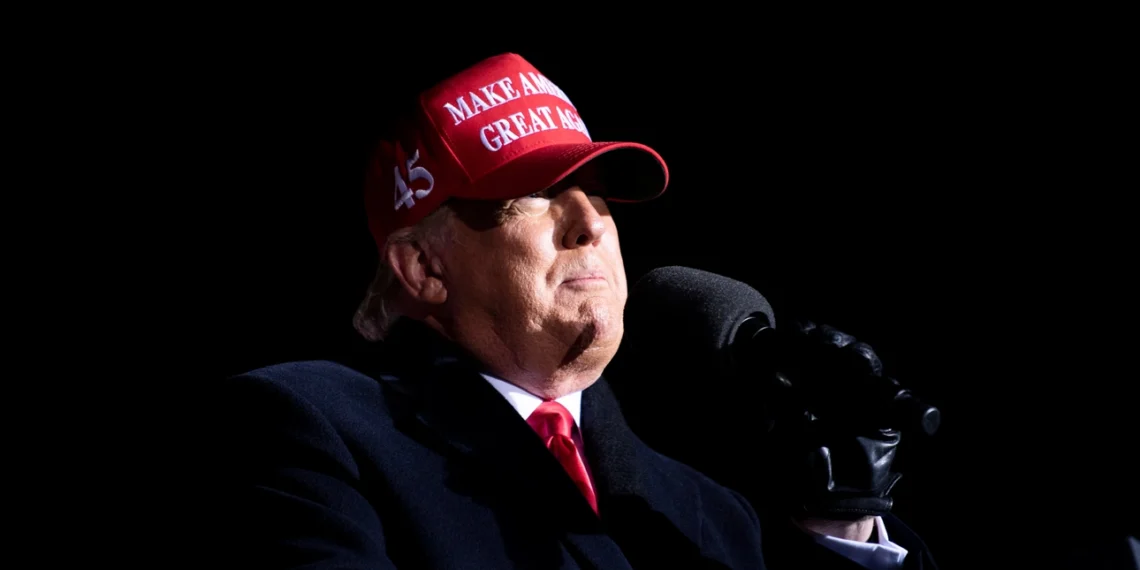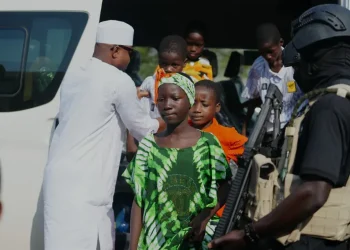Navigating Political Media: Trump vs. Harris
A look at how Donald Trump‘s media strategy, particularly through podcasts, contrasts with Kamala Harris’s approach, impacting their polling positions and voter engagement.
One of the most surprising aspects of Donald Trump’s recent interview with Joe Rogan is that it hadn’t happened sooner. Throughout the 2024 election cycle, the former president has been engaging with various podcasters, primarily aiming to connect with young men in pursuit of the “Bro vote.”
This strategy is guided by Jason Miller, a key advisor to Trump, who explained the campaign’s approach during his appearance on the Playbook Deep Dive podcast. Having worked with Trump since 2016, Miller is well-acquainted with the campaign’s tactics and is open to discussing Trump’s more controversial remarks.
The shift towards alternative media is part of a broader effort to reshape Trump’s public image, and recent polling indicates this strategy is working.
When it comes to choosing which podcasts Trump appears on, Miller emphasized that it’s a collaborative effort. Notably, Barron Trump, the former president’s 18-year-old son, has played a significant role in this process. “Hats off to the young man,” Miller remarked. “Every recommendation he’s made has resulted in ratings gold and broken the Internet.”
Miller noted that the campaign has been leveraging long-form podcasts, which often stray from political topics, allowing Trump to talk about sports, family, and personal challenges. “This strategy differs greatly from what we typically see from politicians,” he explained.
Addressing the campaign’s media strategy, Miller pointed out that while podcasts are a focus, traditional media hasn’t been neglected. A recent Wall Street Journal study found that Trump has given two to two-and-a-half times more interviews with mainstream media than Vice President Kamala Harris since she became the nominee.
This shift towards podcasts reflects a growing trend where voters consume news outside traditional outlets. Miller emphasized that many Americans prefer social media and podcasts for their news, making it crucial to reach them where they are. The campaign is also engaging with financial and entrepreneurial podcasts, not just entertainment ones.
Reflecting on the 2020 campaign, Miller acknowledged that logistical constraints, including heightened security and the COVID-19 pandemic, limited Trump’s ability to participate in unscripted events, which were a hallmark of his 2016 campaign. Now, with fewer restrictions, the campaign has embraced this format again.
From the outset, the campaign aimed to emphasize Trump’s human side—his celebrity status, family roles, and relatable qualities. This strategy was evident in early campaign events, such as a visit to an ice cream and burger joint in South Carolina, which generated considerable online buzz.
Miller highlighted that podcast selection is a group effort, with Barron frequently suggesting appearances that have proven to be highly effective. The approach is dynamic, allowing Trump to adapt his style based on the podcast host and format.
As Trump engages with various podcast hosts, he has become more animated and relatable, moving away from his typical rally-style approach. Miller attributes this change to the chemistry with hosts and the format of the interviews rather than any formal coaching.
Miller stated, “President Trump is going to be President Trump,” emphasizing that Trump’s authenticity remains unchanged. He also noted that recent interviews, where Trump discussed personal topics like addiction, have added a relatable touch to his public persona.
While some Republicans suggest that Trump should speak less, the campaign embraces increased engagement. Miller believes this strategy is effective, as Trump’s media presence generates significant interest.
Discussing the impact of nontraditional media on polling, Miller acknowledged its role in helping Trump catch up to Harris. He highlighted Trump’s focus on key issues like the economy and immigration as pivotal in shaping public perception.
In response to criticism of Harris’s media appearances, Miller argued that her recent attempts have backfired, especially her visit to the border, which only highlighted her immigration record.
Looking ahead to the upcoming election, Miller believes the race will be tight but feels optimistic about Trump’s position compared to previous campaigns. He stressed the importance of remaining vigilant and noted the campaign is prepared for any last-minute surprises.
Regarding recent comments by Trump’s former chief of staff, John Kelly, accusing Trump of making inappropriate remarks about wounded soldiers, Miller dismissed these claims as baseless and politically motivated. He expressed trust in those who were present during such discussions, labeling Kelly’s narrative as “total bullshit.”
When asked about the potential impact of critical figures like Liz Cheney campaigning for Harris, Miller expressed confidence that this wouldn’t negatively affect Trump. He believes Cheney’s involvement could further alienate key voters.
Finally, addressing concerns about the abortion issue affecting Trump’s support among women, Miller stated that the campaign recognizes the importance of engaging independent male voters, a crucial demographic for swing elections.
This article was rewritten by JournosNews.com based on verified reporting from trusted sources. The content has been independently reviewed, fact-checked, and edited for accuracy, neutrality, tone, and global readability in accordance with Google News and AdSense standards.
All opinions, quotes, or statements from contributors, experts, or sourced organizations do not necessarily reflect the views of JournosNews.com. JournosNews.com maintains full editorial independence from any external funders, sponsors, or organizations.
Stay informed with JournosNews.com — your trusted source for verified global reporting and in-depth analysis. Follow us on Google News, BlueSky, and X for real-time updates.














